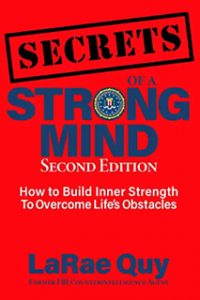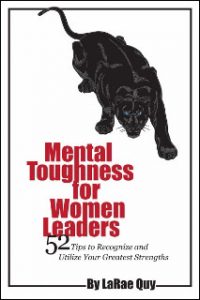During my first 3 weeks of the FBI Academy, new agents like myself were not allowed to leave the Marine Corp base. We spent 24 hours a day with each other—building the trust and familiarity that creates a tribe.
Our tribe trained together for the entire 4 months. We shot over each other’s heads in firearms, punched each other in boxing, and arrested each other in Hogan’s Ally. In a tribe, the survival of the individual depends upon the survival of the group. By the time we received our badge and gun, we knew we could rely on each other to watch our backs when things went wrong.
The importance of tribe building is so important that the FBI recently started allowing intelligence analysts to train next to new agents for the initial few weeks at the Academy. This type of tribe building enables the two groups to work together more easily to gather information when things go wrong—like terrorist attacks, espionage, or cyber warfare.
You need a tribe: it provides an acute sense of belonging—you feel accepted and safe when things go wrong.
Many of us are lucky enough to feel that our biological families are our tribe, but usually tribes are founded around groups of people with shared values, ideas, and experiences.
In the competitive world of business, it is not always easy to feel safe and accepted. When things go wrong, you fear losing your company, your job, and maybe even your health.
It’s at times like this when it’s important to focus on finding what unites you with others rather than your differences. To be a strong and effective leader, you need a tribe.
Here are 4 reasons:
1. FIND A SAFE SHOULDER
Tribes are more than fulfilling friendships and the comfortable exchange of ideas. Although trust is essential, good tribes do not mean warm hugs and unconditional love. Instead, you need a tribe to hold you accountable and provide honest, constructive feedback—even when it’s not what we want to hear.
Core to tribe building is the acceptance of others who are different but whom you respect.
Tip:
Look for people who will help show you how to honestly evaluate yourself and your performance when things go wrong. The healthiest tribes are those that can hold the tension of both competition and cooperation.
2. SHARE YOUR FEELINGS
Avoiding negative emotions may feel like a good strategy at the time, but it does nothing but postpone the flood of emotions that will erupt at some point in the future. The only way to be free of the anxiety and angst you feel when things go wrong is to stop and face what you are feeling.
Don’t wallow in your negativity, acknowledge it. If you are overcome by a negative emotion in the middle of your working day, identify the emotion you are feeling and use one or two words to describe it. Don’t get into a dialogue about it; if you do, they will grow legs and start running away with you.
Tip:
You need a tribe so you can talk about the emotion you experienced earlier without judging it as good or bad. When things go wrong, talk about it with others to help you better understand your own fears and get valuable feedback.
It also helps to write down what you felt and why you experienced those emotions.
3. FIND THOSE WHO LIFT YOU UP
Tribes, like families, are not perfect. There will be times when you need to avoid those who are negative and suck the life out of you.
It has been said that people are like dirt—they can either nourish you and help you grow as a person, or they can stunt your growth and make you wilt and die.
You need a tribe, but pick the people you hang around with care—they create the environment in which you will either thrive or wilt. Give everyone the opportunity to be a friend, but share your dreams and goals only with those members of your tribe and/or community who value them as much as you do.
Tip:
Establish a benchmark test for choosing people to hang around with. Ask yourself whether spending time with this person will lift you up or drag you down? Will spending time with this person help you to become your best self? Will you be happier after spending time with this person? Will this person help you achieve your most important goals? If not, find people who will.
4. SEEK OUT COMPANIONSHIP
In his book, “Tribes,” Sebastian Junger suggests that the lack of tribal brotherhood is what makes it so hard for returning combat veterans to reintegrate into contemporary, fragmented societies.
Above all else, people need to feel connected with others. Disasters create instant communities because when things go wrong, people seek out the companionship of others. Furthermore, we are driven to put our own interests aside for the good of the group.
For those in poor inner city situations, gangs provide a tribal sense of belonging and relevancy. It’s the companionship that makes them feel both safe and connected to others.
Tip:
In times of stress, it’s easy to feel neglected. It’s impossible to instantly create deep bonds of familiarity and trust. Don’t wait until things go wrong to start finding your tribe. Start now.
© 2017 LaRae Quy. All rights reserved.
You can follow me on Twitter, Facebook, Instagram, AND LinkedIn
Are you mentally tough? Here is my FREE Mental Toughness Assessment
Get my new book, “Secrets of a Strong Mind (second edition): How To Build Inner Strength To Overcome Life’s Obstacles”
Author of “Mental Toughness for Women Leaders: 52 Tips To Recognize and Utilize Your Greatest Strengths”








Excellent article LaRae! I am a believer in tribes as they help us be our best self without judging while still sharing honest feedback. I love your tip- “The healthiest tribes are those that can hold the tension of both competition and cooperation.” I want my tribe to hold me accountable to do my best work, push me to do even more, but also be there to support my dreams and decisions.
Thanks as always for sharing your wonderful FBI lessons!
This is fantastic. I would add, it’s so important to build a trusted caring tribe BEFORE things go wrong. I see people think they can do it on their own and isolate themselves thinking they don’t need to be giving or receiving help… and then when they really need help, they haven’t built the relationship equity with others that’s so needed.